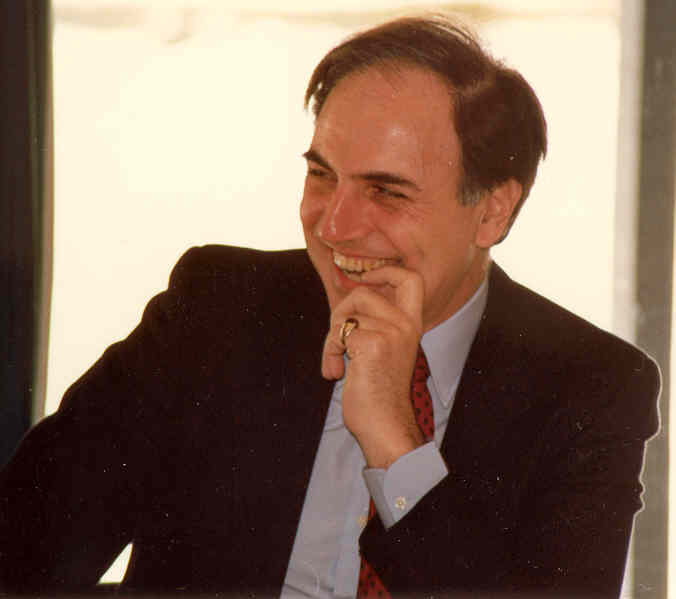The Jewish Humanist Volume 20, No. 3, October 1982
The Israel connection.
For North American Humanistic Jews, it is very important.
This July, 300 delegates from the United States, Canada, England, France, Belgium, Argentina and Israel met in Jerusalem in the Truman Auditorium of Hebrew University to establish the Institute for Secular Humanistic Judaism. This school is the first institution of higher learning which has been created for the specific purpose of promoting a humanistic approach to Jewish identity and Jewish culture.
With a part-time faculty of thirty scholars, academicians and teachers, the Institute intends to publish literature in Hebrew, English and other useful “Jewish” languages – literature which can be used for educational and inspirational purposes by secular Jewish communities. It intends to train professional leaders, lectures and spokes people to provide scholarly and popular answers to important Jewish questions and to service a focal point for a federation of humanistic Jewish societies throughout the world.
Haim Cohen, The civil libertarian, legal scholar and former chief justice of the Supreme Court of Israel will serve as the Honorary President. Yehuda Bauer, The world-renowned scholar-expert on antisemitism and Holocaust studies, will serve as the president.
Also this July, 11 young people from the Birmingham Temple – ages made a summer “pilgrimage” to Israel to attend the opening seminar of the Institute and to spend six weeks in a special training program for secular humanistic youth. This trip was the first of, hopefully, many “pilgrimages“ which will be available to all 10th grade graduates who are affiliated with the Society for Humanistic Judaism. We hope that this summer adventure will take its place alongside the Mitsva and Confirmation ceremonies as one of the rites of passage in growing up as a Humanistic Jew.
Why this special emphasis on the Israel connection?
Israel is the Drammatic embodiment of our view of Jewish identity. The Zionist state is a living testimony to the fact that the Jews are more than a religious denomination. We are a historic nation with a national culture, A culture brought enough to include both religious and secular Jews. Because of Israel it is no longer easy to pretend that the Jews are only at theological fraternity.
Israel is also a dramatic embodiment of our view of human power. Against orthodox passivity and Messianic waiting, the Zionist pioneers proceeded to take Jewish “destiny“ into their own hands into mold the Jewish future instead of resigning themselves to it. The Zionist venture was – and still remains – a revolutionary break with the mood of the old religious tradition.
Israel is the fastest growing Jewish community in the world. The reason is not immigration; it is birth rate. Because of a declining Jewish birth rate, the Diaspora communities are shrinking. In 1985, 25% of the world Jewish population resides in Israel. Into thousand 40% of world Jewry will live in the Jewish state. Time goes on, Israel will increasingly become the center of Jewish identity.
Israel is the only state where Jewish culture can function as a majority culture. The Jewish language is the national language. Jewish holidays are national holidays. Jewish heroes are national heroes. Therefore, the Jewish creative potential of Israel is far greater than that of Diaspora communities where an uphill battle will always be fought against the attractiveness of the dominant culture. Less effort has to be exerted in Israel to remain Jewish. More effort can be devoted to more positive enterprises.
Israel is the home of the largest body of self-proclaimed secular Jews in the world.
Just as Reform was the dominant ideology of the nineteenth century founders of the American Jewish community – making it, In the American context, older and more prestigious than Orthodoxy – so what is humanism the dominant belief of the Zionist founders of the Jewish state. From the labor movement to the kibbutzim, From the universities to the newspapers, the secular point of view prevailed. In the same sense as in America, Orthodoxy is “newer“ than secularism. It’s recent victories are in assault on the “establishment“.
Israel is the home of the largest body of scholars, academicians and teachers who identify themselves as secular and Humanistic Jews. No where else is it possible to assemble a working faculty for an institute of Humanistic Judaism. While the new school will be international, with branch offices in North America and western Europe, the center must remain in Jerusalem where the intellectual resources are more available.
The Israel connection is indeed very important. In an age of technological revolutions where traveling from Detroit to Jerusalem is far easier now than moving from Detroit to Toledo was 150 years ago, maintaining the is real connection may become a far simpler project than we imagine.

